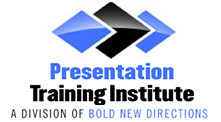Effective Time Management for Presentations
Time management is crucial in delivering a presentation that is clear and concise. A well-planned and organized presentation not only ensures the audience is informed of all key points in the allotted time frame, but it also reflects positively on the presenter’s professionalism and preparation. Let’s take a closer look at the importance of time management and some strategies for adhering to a set schedule in your next presentation.
The Significance of Time Management in Presentations
Effective time management is significant because it demonstrates consideration for the audience’s time. When people attend a presentation, they expect to receive useful information within the allotted time frame. Failing to adhere to this schedule can leave audiences feeling frustrated and confused. Furthermore, proper time management helps the presenter stay on track to ensure that all key points are covered. This prevents the presenter from going off topic and running over time, which could result in the audience losing interest.
Strategies for Effective Time Management in Presentations
1. Know Your Time Limit
It may seem like an obvious point but you need to know how much time you have and the absolute hard stopping point should something go awry. You need to work and plan your presentation around an exact period of time.
2. Set Clear Objectives
You need to define your goals and objectives and have a clear understanding of what information you want your audience to take away from your presentation. This will help you stay focused on your main points and guide your content and delivery.
3. Create a Detailed Outline
It is also important to have a clear structure for your presentation. A well-organized outline acts like a roadmap for your presentation. It helps you to move through your thoughts and ideas in a logical order, making it easier for the audience to follow along. It can also serve as a guide to keep you on track and prevent you from going off topic. Furthermore, a detailed outline allows you to determine how much time you can spend on each key point.
4. Set a Timer
Setting a timer or using a clock during your presentation will allow you to keep track of how much time you have left. Monitor your time throughout the presentation so you can pace yourself accordingly and ensure that you cover all of your points in the allotted time.
5. Practice!!!
There is perhaps nothing as important as practice to ensure you stay on time during your presentation. By going over the material repeatedly, you can gauge how much time you are spending on each key point and you can learn how to pace yourself accordingly. You will also become more familiar with the material, which will help you speak more fluidly. In addition, it will help you anticipate any questions that may arise during the presentation.
Time management is a critical component of delivering a successful presentation. By planning, organizing, and preparing in advance, presenters can ensure their presentations are well-structured and delivered within the designated time frame. At Bold New Directions, we recognize the importance of building your skills in order to deliver effective presentations. Our unique Presentation Training courses are designed to help you enhance your time management skills so that you can make the most of your presentation time. Call today and learn more about how our training courses can help you improve your presentation skills!
